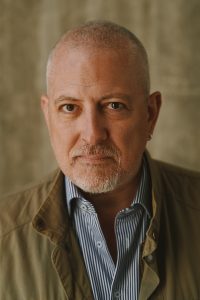RODGERS Dennis
Contact details

Professor of Sociology and A*Midex Chair of Excellence in Comparative Studies of Violence and Urban Governance
Academic work
2025-2028: Rethinking urban violence
What is urban violence? How can we conceive of it in a way that goes beyond simply considering cities as a context in which violence takes place? This project starts from the premise that the common denominator of any urban space is that it is fundamentally and intensely collective and relational. Logically, this means that the experience of urban violence should be too. But how do we capture this in practice? What are the best ways of conceiving, studying and measuring the collective and relational dimensions of urban violence? Adopting a global and comparative approach, this project will aim to rethink the notion of urban violence through a research programme built around three interdependent lines of study, linked respectively to (1) the relationality of urban violence, (2) the mobility of urban violence, and (3) the governance of urban violence. Drawing empirically on case studies in Buenos Aires (Argentina), Cape Town (South Africa), Geneva (Switzerland) and Marseille (France), the project aims to develop new ways of conceiving, studying and measuring the collective, situated and interdependent nature of urban violence, in order to develop a more holistic and nuanced understanding of the phenomenon across its multiplicity and variability. Funding: A*Midex Chair of Excellence (AMX-23-CEI-117).
2019-2024: Gangs, Gangsters, and Ganglands: Towards a Global Comparative Ethnography (GANGS)
Gangs are an almost universal phenomenon, present throughout time and space in almost every society on the planet. That said, they can vary enormously in their forms, dynamics and consequences, and it is not always clear which of these dynamics are general and which are specific to particular times and places. The GANGS project has developed comparative and collaborative research to better understand why gangs emerge, how they evolve over time, whether they can be associated with particular contexts and configurations, how and why individuals join gangs, and what impact this may have on their life trajectories. The project involved three primary case studies, Managua in Nicaragua, Cape Town in South Africa and Marseille in France, as well as two secondary studies, Naples in Italy and Algeciras in Spain. A team of six researchers conducted 59 months of ethnographic research, both individually and collaboratively, and 41 other researchers also collected the life stories of 31 gang members in 23 countries around the world. For more details, see here. Funding: ERC Advanced Grant from the European Research Council (no. 787935).
Areas of research
Urban anthropology
Conflict and violence
Gangs
Socio-spatial governance
Political economy of development
Qualitative research methods
The relationship between art, culture and the social sciences
Latin America (Nicaragua, Argentina), Asia (India), Europe (France, Switzerland)
Productions
Recent publications (selection):
- Gang Lives: Global Portraits from the Streets and Beyond, London: Bloomsbury Press, 2026, .
- “Critical gangster life histories”, Critical Criminology, 33(4), 2025.
- (with Steffen Jensen), “Gangs, Drug Dealing, and Criminal Governance in Marseille, France”.”, European Journal of Sociology/Archives Européennes de Sociologie, 2025.
- “Gang rule(s): Towards a political economy of youth gang dynamics in Nicaragua”.”, Qualitative Sociology, 47(2): 377-404, 2024.
- (with Steffen Jensen), “Comparison through collaboration: Dilemmas and opportunities of joint ethnographic research on gangs in Nicaragua and South Africa”.”, Current Anthropology, 65(1): 49-71, 2024.
- (with Martin Lamotte), “La loi des hors-la-loi: L'ordre et la loi au sein, avec, et au-delà des groupes criminels/The law of the outlaw: Law and Order With, Within, and Beyond Criminal Groups”.”, Swiss Journal of Sociocultural Anthropology/Revue Suisse d'Anthropologie Sociale et Culturelle, 29: 4-37, 2023.
- (with José-Luis Rocha and Julienne Weegels), “Debunking the myth of Nicaraguan exceptionalism: Crime, drugs, and the political economy of violence in a Narco-State”.”, Journal of Latin American Studies, 55(3): 519-543, 2023.
- “Il/legal aspirations: Of legitimate crime and illegitimate entrepreneurship in Nicaragua”.”, Latin American Politics and Society, 64(4): 48-69, 2022.
- “Between memory of the past and anticipation of the future: wars, gangs and vendettas in Nicaragua”.”, in Catherine Courtet, Mireille Besson, Françoise Lavocat, and François Lecercle (eds.), The memory of the future (Rencontres Recherche et Création du Festival d'Avignon), Paris: CNRS éditions, 2022.
- (with David Lewis and Michael Woolcock), New Mediums, Better Messages? How Innovations in Translation, Engagement, and Advocacy are Changing International Development, Oxford: Oxford University Press, 2022.
The Conversation (France) :
- “Gang stories: another look at violence”, The Conversation (France), 06/09/2024.
- “Soraya in Nicaragua: the real queen of the drug dealers”.”, The Conversation (France), 11/08/2024.
- (with Steffen Jensen), “Marseille seen from the inside: an exploration of urban violence”.”, The Conversation (France), 20/03/2024.
- (with Steffen Jensen), “From Managua to Cape Town, drug trafficking in the Covid-19 era”.”, The Conversation (France), 05/05/2020.
- “From crack dealer to tortilla vendor: The astonishing journey of ex-gang members”, The Conversation (France), 16/07/2019.
- “Ethnologist and gang member: a Nicaraguan experience”.”, The Conversation, 09/05/20219.
- “Gangs, astonishing mirrors of our society”.”, The Conversation, 17/04/2019.
Find out more:
See also: https://scholar.google.com/citations?user=YR4CPygAAAAJ&hl=en